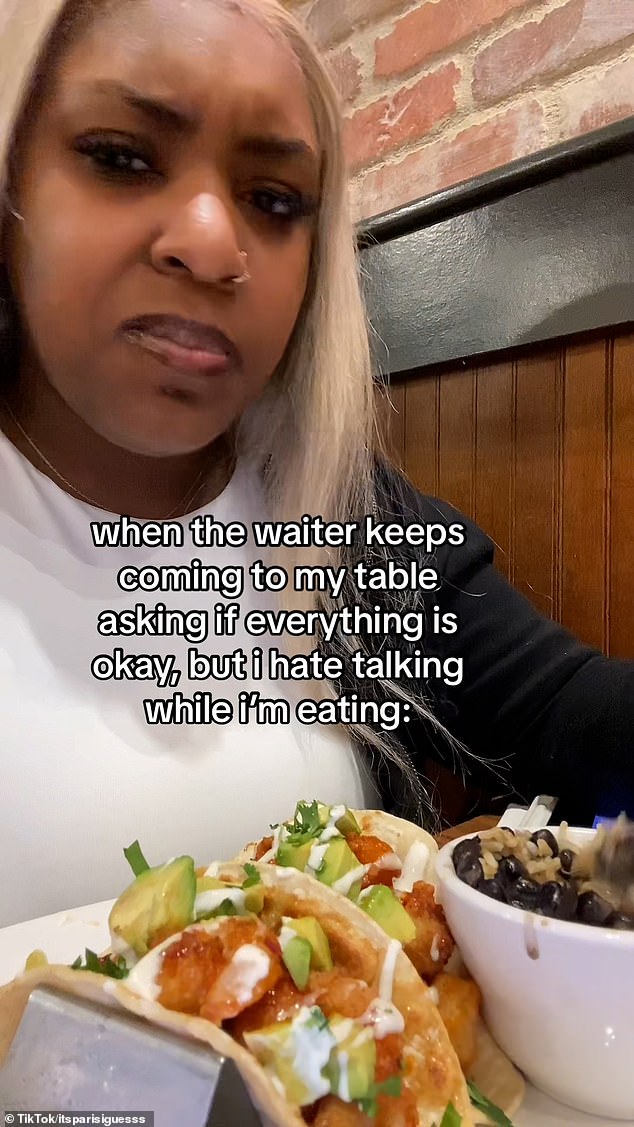Generation Z diners don’t want to talk to waiters at restaurants and prefer to order and pay via mobile apps, a cafe owner said.
Bill’s general manager Tom James said a growing number of younger customers don’t want to interact with waitstaff because they’ve “grown up” communicating through their phones and devices.
In an attempt to modernize its restaurants and attract Gen Z customers, the casual dining business has recently installed several technological upgrades, including self-service kiosks and QR codes.
Mr James said that in some locations, particularly in central London, more than 50 per cent of customers were already choosing to pay digitally.
He said The times‘It’s definitely a way that a large portion of the market would like to go out to eat.
“It goes against hospitality and as an old-school veteran, it’s different. But we have to adapt.”
An increasing number of young customers don’t want to interact with waiters because they have “grown up” communicating through their phones and devices (pictured: a TikToker posts a video showing her displeasure at having to talk to a waiter)
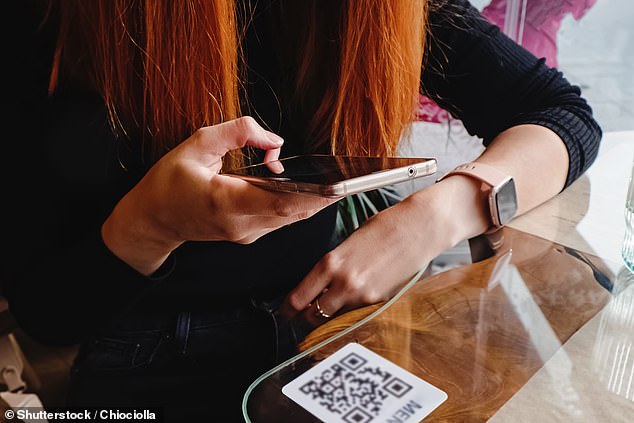
Bill’s managing director Tom James said that at some of the company’s sites, particularly in central London, more than 50 per cent of customers were already choosing to pay digitally (file image)
Self-service kiosks have been a regular sight in many restaurant chains such as McDonalds and Leons for several years now, prompting campaigners to warn that older diners, who are more comfortable with face-to-face contact, may end up effectively excluded.
Mr James insisted Bill’s would not lose its focus on traditional hospitality and stressed that service staff would remain available in the restaurants for customers who want to do things the traditional way.
He also said his self-service kiosks would be “much more subtle” than those found at fast-food chains, adding: “That personal interaction, that creation of an experience in a moment, is the most important thing for us in the business. But you have to offer the alternative now.”
Bill’s has also introduced a wider range of non-alcoholic drinks and cocktails to attract Gen Z diners to its sites, after a recent report found that 21 percent of under-25s said they avoided alcohol altogether in the past year.
Tables and menus have also been revamped to be more social media friendly, while TikTok has been launched to “huge positive results”.
James said: “The flip side of that was consciously knowing how important social media is to Gen Z. We started over and looked at everything from tableware to how the dishes look on the plate, knowing that it’s not just about great dishes, but how they look on social media channels.”
The restaurant boss also claimed that the number of reservations had increased over the past two years after he started using AI chatbots instead of human staff to take reservations.
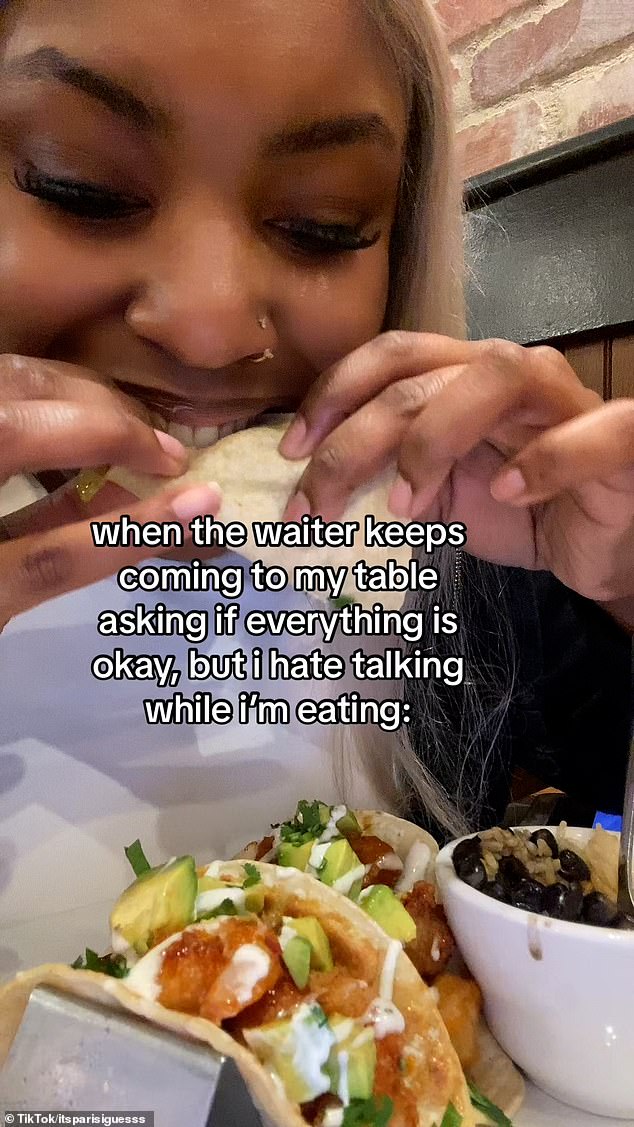
The bill’s head said Gen Z diners don’t want to talk to waiters at restaurants and prefer to order and pay via mobile apps.
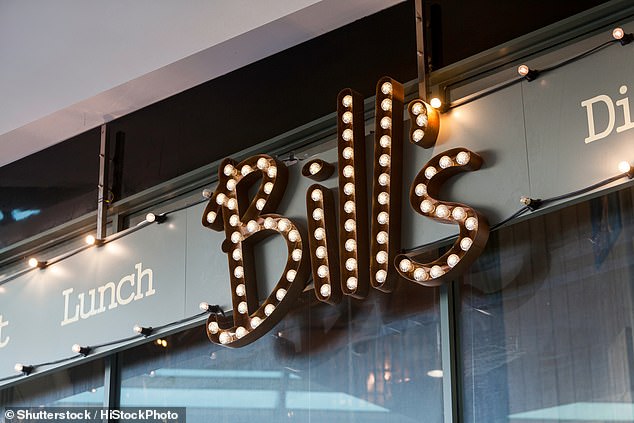
In an attempt to modernize its restaurants and attract Gen Z customers, Bill’s has recently installed several technological upgrades, including self-service kiosks and QR codes.
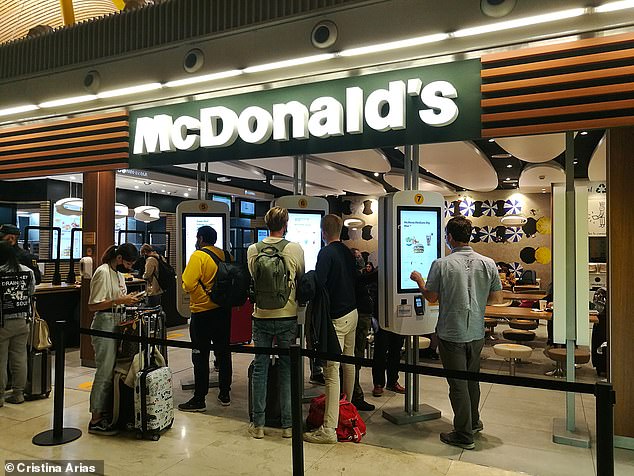
Self-service kiosks have been a regular sight in many restaurant chains such as McDonalds (pictured) for several years now.
Bill’s, now owned by billionaire restaurant magnate Richard Caring, began life as a grocery store in Lewes, Sussex, and is named after its founder Bill Collison.
Before the Covid pandemic, Bill’s was struggling to attract diners and was forced to close dozens of sites in recent years after Carling admitted the brand had become “tired”.
But today it operates around 45 sites across the country and has posted sales figures of £92.6m in 2023. These figures continue to rise by 3.4 per cent in the first half of 2024, the company said this week.
Mr James said: “The first part was a refresh of the brand and the way we present ourselves, much more vibrant and colourful and targeting families and Gen Z. The second part was just a really forensic approach to every cost.”
It also points out that while many of its competitors imposed steep price increases on their customers during the cost of living crisis, Bill’s barely raised its own.
The company now plans to open two new sites, in Milton Keynes and Street, Somerset, before the end of the year.
This is ahead of a wider expansion next year, which will see a combination of traditional Bill’s restaurants and new café-style sites that will focus on sharing plates, cakes, pastries, coffee and draft beer rather than just sit-down meals.

